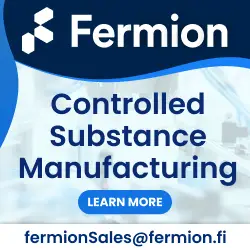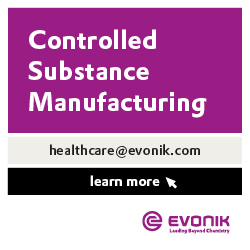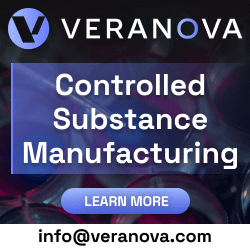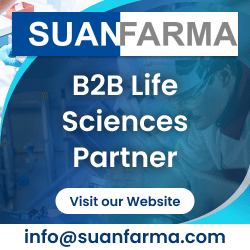Overview of controlled substances & more on CMOs, CDMOs offering drug development & pharma manufacturing services for controlled substance APIs.
Q1. What are controlled substance APIs?
A controlled substance is a chemical or drug that is tightly controlled by the government. The use of controlled substances is regulated because it can cause drug abuse or can be addictive. Such substances include opiates, depressants, hallucinogens, stimulants, steroids, etc.
According to the U.S. FDA, controlled substance active pharmaceutical ingredients (APIs) need to have an accepted medical use for treatment, along with a likelihood of causing dependence when abused. The United States’ federal government defines a controlled substance as any of the substances listed in the schedules of the Controlled Substances Act of 1970 (CSA).
The United States Drug Enforcement Agency (DEA) divides DEA controlled substances into 5 categories called ‘Schedules’ based upon a substance’s potential for abuse and addictiveness and its usefulness in medicine. The schedules are broken down into five DEA controlled substance categories, schedule I-V controlled substances. European countries also follow similar guidelines regarding the designation of controlled substances and their classification.
The demand for controlled substance active pharmaceutical ingredients (APIs) has increased rapidly in recent years because these products have considerable potential to address unmet patient needs, particularly in therapeutic areas such as depression, PTSD, addiction and pain management.
Today, controlled substance active pharmaceutical ingredients (APIs) are being considered for many products, including the treatment of attention deficit hyperactivity disorder (ADHD) and an increased exploration of their use in oncology. All these factors are expected to drive the global controlled substance API market.
However, manufacturing controlled substance APIs is expensive to implement and demands a high-level of knowledge and expertise, leaving many developers falling short of the requirements. The necessary control measures vary depending on the substance classification attributed to a specific compound, i.e. schedule I-V controlled substances.
Furthermore, strict regulations by some countries like the USA and UK for manufacturing controlled substance active pharmaceutical ingredients (APIs) can pose a major challenge for its market. As such, outsourcing the development and manufacture of DEA controlled substances, small molecules to a contract development and manufacturing organization (CDMO), CMO, service provider or manufacturer of controlled substances and opiates, etc. can prove to be beneficial.
Q2. What are some differences in the pharmaceutical manufacturing of controlled substances?
Producing controlled substance APIs is really no different than producing them for other drugs. All require cGMP manufacturing capabilities and facilities, equipment, expertise and other infrastructure, however, the development and manufacture of controlled substance APIs can be more costly and usually requires extra considerations. Furthermore, the pharmaceutical manufacturing of controlled substances, specially highly potent controlled substances, requires increased diligence surrounding quality, safety, and security.
Quality
Quality control is an essential operation of the pharmaceutical industry. Drugs must be marketed as safe and therapeutically active formulations whose performance is consistent and predictable. This goes up exponentially when it comes to controlled substance services. Conforming to cGMP manufacturing service requirements is essential to ensure heightened quality control of the compound that a controlled substances manufacturer is developing.
Safety
Personnel safety is paramount while manufacturing controlled drug substances. Personal Protective Equipment (PPE) such as gloves and eye protection should always be worn. Safety equipment such as an emergency safety shower or an eyewash station is another must-have safety consideration. Furthemore, for added safety, high potent controlled substances are usually stored in substantially constructed, double-locking boxes that have been mounted on a wall, bolted into a laboratory bench drawer, etc.
Security
This is one of the most critical aspects for manufacturing controlled drug substances. Strict, controlled access to production and storage areas is often necessary and cameras are required in all entry ways. Standard operational procedures covering security are also needed. Furthermore, employees working with controlled substances must go through extensive background checks which may include an assessment of disciplinary, ethical or criminal activities.
Such stringent regulations surrounding the drug development and manufacture of controlled substance APIs can create challenges for companies. This has led to many firms choosing to outsource such work to organizations which have the experience and license approvals required to allow them to handle controlled substance APIs.
Outsourcing to CDMOs, CMOs, controlled substances manufacturers or service providers, etc. with cGMP manufacturing capabilities that offer controlled substance services enables developers to take advantage of the necessary compliance procedures and comprehensive controls already in place, while also benefiting from cost reductions and import or export assistance.
Q3. What are the controls required during controlled substance manufacturing?
During controlled substance manufacturing, pharmaceutical organizations usually follow a number of security and laboratory controls in addition to highly regimented training and safety protocols to ensure the safe handling of controlled substance APIs. The controls for manufacturing controlled drug substances are noted in detail below.
Environmental Controls
Proper management of controlled substances is imperative as it serves to prevent the detrimental effects of improperly disposed pharmaceuticals in the environment. Furthermore, for high potent controlled substances, airlock and cascading pressure differentials to prevent cross contamination, barrier isolation technology, separate gowning, misting and de-gowning areas, etc. are required.
Laboratory Controls
In addition to environmental controls, laboratory controls are also essential when it comes to controlled substance manufacturing. Laboratory controls include equipment cleaning validations at extremely low levels, dedicated laboratory equipment, keycard security systems, etc.
Material Handling Controls
Material handling controls are very important during the manufacturing, inventory management, storage, distribution, and disposal of controlled substances which require special handling requirements. For example, drug products classified as controlled substances by the U.S. Drug Enforcement Administration or by individual state requirements should be labeled and handled in accordance with applicable regulations.
Documentation Controls
Controlled substances require specialized documentation from development and manufacturing all the up to their distribution. For example, when returning controlled substances to a manufacturer, pharmacies must document the date, the manufacturer's name, address, and DEA registration number, and the drug name, dosage, quantity, and strength.
Training Controls
Operators working with controlled substances undergo a rigid training programme covering the regulations that govern the handling of controlled drugs in addition to good manufacturing practice (cGMP) training. All laboratory staff are thus thoroughly trained on working with high potent controlled substances and hazardous materials
All these requirements can be challenging to adopt for many facilities. A specialised clinical supply and commercial manufacturing partner which has expertise in handling controlled drugs adds value to any pharmaceutical company that has such products in drug development or on the market.
What is key, however, for a contract development and manufacturing organization (CDMO) or a controlled substances manufacturer having cGMP manufacturing capabilities producing controlled substance active pharmaceutical ingredients (APIs) is understanding the risks inherent in them and putting in place the controls related to the infrastructure, processes and expertise required for ensuring that they offer quality controlled substance services for opiates, narcotics, etc.
Q4. Which are the leading pharmaceutical companies offering controlled substance API manufacturing?
Various pharmaceutical organizations, such as a CDMO, CMO, contract service provider or manufacturer of controlled substances, small molecules, etc. equipped with controlled substance API manufacturing and drug development capabilities can offer end-to-end services for clinical supply as well as the development and manufacture of controlled substance APIs, for example opiates.
Leading Pharmaceutical Organizations Offering Controlled Substance API Manufacturing:
Fermion Oy - Controlled Substance Manufacturing
Fermion is an API CDMO which offers end-to-end services for the pharmaceutical manufacturing of controlled substances, APIs, hazardous materials, high potent compounds, etc. It has dedicated areas for manufacturing class IV narcotic raw materials and commercial scale immunosuppressants with a reactor capacity of 25 m3 for OEB5 classified APIs in its Hanko site.
Fareva - Controlled Substance Manufacturing (Psychotropics, Narcotic Raw Materials)
Fareva offers contract manufacturing services for various dosage forms and has a wide range of API development and manufacturing capabilities including controlled substances, high potents, cytotoxic hazardous materials, and steroids and hormones. Furthermore, its FDA approved site, Istituto de Angeli, manufactures a broad range of OTC cough and cold drugs and keeps a strong know-how in controlled substances (psychotropics, narcotic raw materials).
Pfizer CentreOne - Manufacturing of Controlled Substances
Pfizer CentreOne's API development and manufacturing capabilities include manufacturing controlled substances, steroids, hormones and prostaglandins, complex organic synthesis, etc. They also offer cGMP manufacturing services for clinical supply or commercialization batches at commercial scales. Furthermore, its sterile injectable manufacturing and drug development capabilities encompass complex biologics, controlled substances, sterile suspensions, etc.
Minakem - Controlled Substance Development and Controlled Substance Manufacturing
Minakem is a contract development and manufacturing organization (CDMO) that offers end-to-end services for high-potency APIs (HPAPIs), cytotoxic / cytostatic hazardous materials, etc. They also have expertise in controlled substance development and cGMP manufacturing services. Its Louvain-la-Neuve site offers high potent APIs, controlled substances, small molecules, process development, scale-up up to commercial scale, manufacturing services and commercialization.
Curia - Outsourcing the Development and Manufacture of DEA Controlled Substances
Curia is a trusted partner, providing expert solutions for outsourcing the development and manufacture of DEA controlled substances, in a safe and secure way. It offers DEA registrations for the manufacturing, research and export of schedule I-V controlled substances as well as controlled substance development services. Curia therefore functions as a manufacturer of controlled substances as it has controlled substance API development and manufacturing capabilities.
All Suppliers












 With Fermion, start the journey of your innovative API.
With Fermion, start the journey of your innovative API.
















